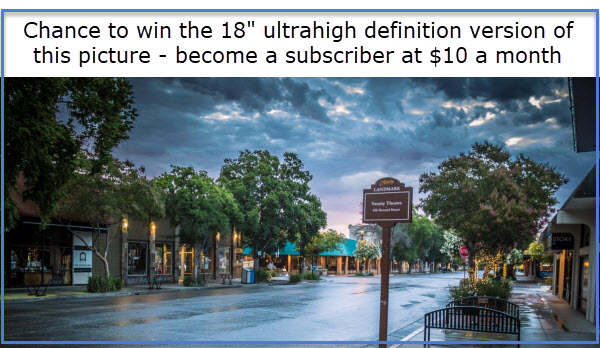 A coalition of media groups led by the First Amendment Coalition (FAC) today filed briefing in the California Supreme Court to oppose a police union’s effort to undermine the effectiveness of a new, landmark police transparency law.
A coalition of media groups led by the First Amendment Coalition (FAC) today filed briefing in the California Supreme Court to oppose a police union’s effort to undermine the effectiveness of a new, landmark police transparency law.
The law requires a wide range of records relating to police misconduct to be available to the public—a sweeping change in California law. Prior to the bill’s enactment in September, California was one of a handful of states to bar public access to records surrounding investigations into police shootings and accusations of police misconduct.
The law brings California into the mainstream by allowing the public to see records relating to police shootings, instances of sexual misconduct, or acts of dishonesty, such as perjury by police officers. It takes effect on January 1, 2019.
However, a San Bernardino County police union is making a last-ditch effort to weaken implementation of the law. On December 18, it filed papers in the California Supreme Court asking the high court to rule that the new law applies only to records created after January 1. If the court so ruled, records of past police misconduct would generally remain inaccessible to public scrutiny.
“It’s clear this is not what the Legislature intended with this sweeping and landmark legislation,” said FAC Executive Director David Snyder. “Obviously, the Legislature wanted to open up police misconduct files, irrespective of when they were created. The police union’s rushed and last-minute effort should be promptly denied by the Supreme Court. The public deserves to see these records and has a legal right to do so as of January 1.”
Joining FAC in the effort are the Los Angeles Times, KQED, and the California News Publishers Association.
In their opposition, the coalition notes that the county’s primary concern is the legal obligations under the California Public Records Act. “It has little if any direct interest in ensuring that  SB 1421 is construed in a manner consistent with its Legislative purpose of expanding public access to information regarding the use of force and serious misconduct by law enforcement officials.”
SB 1421 is construed in a manner consistent with its Legislative purpose of expanding public access to information regarding the use of force and serious misconduct by law enforcement officials.”
The coalition is concerned that should the court grant relief sought by the police unions and counties, the public’s “access rights would be significantly harmed.”
A law enforcement union representing officers from the San Bernardino County Sheriff’s Department has filed a petition with the California Supreme Court to stop the county from complying with SB 1421 as it pertains to requiring the disclosure of officer misconduct records, until the court determines whether the law is retroactive.
Timothy Talbot filing on behalf of San Bernardino County Sheriff’s Employees’ Benefit Association argues that “SB 1421 imposes a new statewide mandate that these personnel records and specified information maintained by public agencies shall be subject to disclosure and otherwise available for public inspection pursuant to the California Public Records Act.”
SB 1421 must be applied and enforced “as to personnel records and information reflecting specified peace officer conduct occurring prior to January 1, 2019. That information, however, is confidential as a matter of law and not otherwise subject to disclosure, except by discovery pursuant to Sections 1043 and 1046 of the Evidence Code. The intent of the legislature in enacting SB  1421 was not to abridge existing law as to records and information pertaining to incidents and conduct pre-dating January 1, 2019, the effective date of SB 1421.”
1421 was not to abridge existing law as to records and information pertaining to incidents and conduct pre-dating January 1, 2019, the effective date of SB 1421.”
Union President Grant Ward said in a statement, “SEBA is very concerned about any plans to retroactively apply Senate Bill 1421. We believe retroactive application violates our members’ rights and we hope the California Supreme Court will consider the serious issues raised by our legal challenge.”
The legislation was sponsored by State Senator Nancy Skinner. She explained California’s previous restrictions against releasing information about investigations into police officer misconduct did not serve the best interest of the public.
“When incidents such as a police shooting occurs, the public has a right to know that there was a thorough investigation,” Senator Skinner said in a previous statement. “Without access to such records, communities can’t hold our public safety agencies accountable.”
Some of these concerns relate to workload. For instance, Los Angeles Police Department Chief Michel Moore in a letter noted that his department had to establish a separate SB 1421 Task Force in order to prepare for the “massive influx in historical records requests it anticipates.”
He argues that this influx “beyond any reasonable expectation given the sheer volume of personnel complaints and uses of force (UOF) maintained in antiquated or archaic formats.”
The petition seeks to direct their county to refrain from “retroactively” enforcing SB 1421. The media coalition counters that SEBA’s interpretation of SB 1421 is incorrect. They argue, “SB 1421 does not implicate vested rights and therefore can and should be applied retroactively.” They add, “the legislative history of the bill makes clear the California Legislature’s understanding and intent that SB 1421 would apply retroactively.”
—David M. Greenwald reporting





